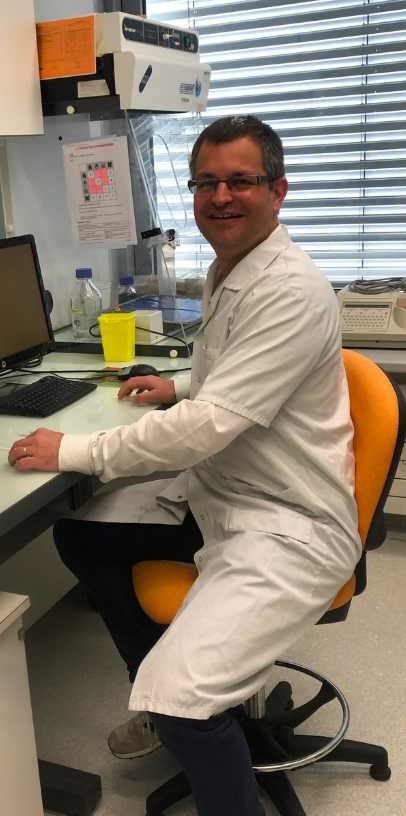For Pierre Galichon It Is All About Protecting the Kidneys
Pierre Galichon is a nephrologist at Pitié-Salpêtrière Hospital in Paris. Thanks to the ATIP-Avenir program, he has created his own kidney disease research team within an Inserm unit at Tenon Hospital, also in Paris. His goal? Learn to control the natural repair mechanisms of the kidneys in order to improve their protection in the event of acute stress, such as transplantation.

Pierre Galichon is a doctor and a researcher. His center of interest is the kidney: an organ that can be affected by diseases both acute or chronic and be the subject of intensive treatments, even transplants. « By closely monitoring dialysis and transplant patients we can form cohorts that constitute great tools for learning more about renal diseases, » he explains. A specialist in nephrology, he practices in the medical and surgical department for renal transplantation at Pitié-Salpêtrière Hospital. And it was two years ago that he formed his own research team, Mechanisms of renal repair, within an Inserm unit* at Tenon hospital.
This relentlessly hard worker has always combined medicine and research: he prepared his Master’s year 2 during his residency and then, in 2013, defended his scientific dissertation on the nephrotoxicity of cyclosporine – a treatment used to prevent transplant rejection. After four years of medical practice and teaching at Sorbonne Université, he headed to Harvard in the US for a postdoctoral fellowship at Brigham and Women’s Hospital, where he set about studying the energy balance of cells. Back in France, he obtained the status of assistant professor-hospital practitioner in his current department. But he wanted to go further: he prepared a research project and obtained ATIP-Avenir funding to form a team of clinicians and scientists to conduct it. « The clinical aspect of our work is a real plus: the patients’ experience, their long-term follow-up, the unmet needs we identify in daily practice help us to progress. And this expertise complements that of the scientists who have other viewpoints, other approaches. Bringing clinicians and scientists together is a real driver, » emphasizes Galichon.
Guiding the kidney in its repair
The objective of this multidisciplinary team, which currently has six members, is to explore the mechanisms of natural kidney repair in order to open up new therapeutic avenues. « When subject to aggressions, for example during transplantation or nephrotoxic treatment, the kidney triggers mechanisms of repair – particularly the proliferation of a type of renal cell called tubular cells. But this process demands a lot of resources, particularly in terms of energy, which weakens the kidney and makes it vulnerable in the event of a second aggression, with the added risk of developing a chronic renal disease. It’s a bit like in wartime, he illustrates, when a town is bombed, the best thing is to rebuild it as soon as possible so that its people have shelter. But starting to do so before the bombing has stopped exposes them to even more damage! » The objective then is to learn to control these processes in order to manage them over time, triggering them when the aggressions have stopped, according to the patients’ situations. « During a transplant, the kidney doesn’t know when it’s safe. But we do and the ideal thing would be to be able to guide it, » explains the physician-researcher.
For that, he refers to previous research in which he had identified Nupr1, a gene expressed in the event of aggression. It codes for a protein that improves the energy balance and survival of cells, whilst delaying their multiplication. Its action thereby prevents lesions from worsening in the event of lasting trauma. Galichon now wants to characterize the molecular mechanisms involved in this process with the ultimate aim of developing a targeted therapy. His team uses both cellular and animal models: mice – but also pigs, whose renal physiology is very similar to that of humans.
For Galichon, this is just the start: « I know that in answering some questions, this research will raise new ones. And I’ll be ready! » he smiles.
Note:
*Unit 1155 Inserm/Sorbonne Université, Common and rare kidney diseases: from molecular events to precision medicine, Tenon Hospital, Paris.
